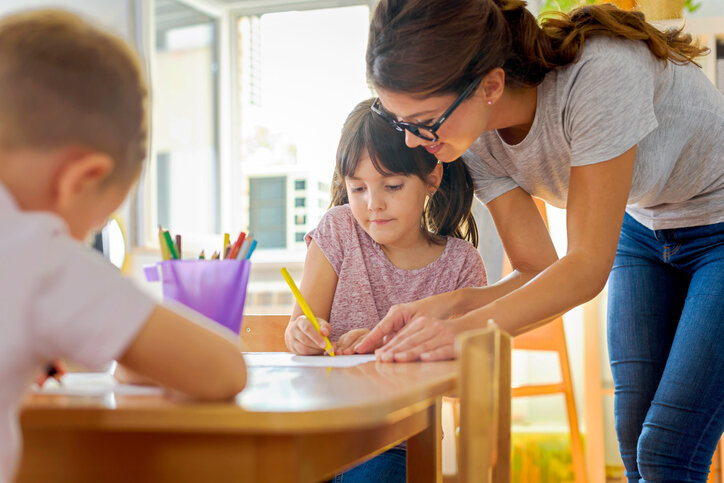The widespread setbacks of bubble schools and methodologies for a safe school return force radical measures to be taken.
Online education has become an invaluable resource worldwide to continue teaching during the pandemic. We have published extensively on the role of distance learning in times of pandemic health confinements. However, for many families and teachers, online education has not been the only option to continue educating children and young people. Where feasible, clandestine schools have been radical but beneficial alternatives so that pupils do not miss classes and continue developing the social skills needed in face-to-face contexts.
Clandestine schools are learning spaces provisionally created at home and comprised of small classes. Families and teachers organize specific content and schedules to follow as closely as possible the plan that the Secretary of Education of their locality would have for face-to-face classes. They also define the academic grades according to their ages and the year they would be studying. This kind of schooling is prevalent mostly in Latin America and Spain.
Why are they necessary?
Since the beginning of the pandemic, governments of various countries have tried to implement protocols that permit continuing face-to-face education. These are the bubble schools. Argentina, for example, implemented this bubble school scheme beginning in August last year in official installations approved by the government.
Strict measures were imposed to regulate this controlled return to presential education. The classes had to be two hours and tandem and conducted outdoors. The classes in session could not exceed ten students, and the periodicity had to be once a week or fortnight, depending on the school. These initiatives to be the first step of a general return to school were in effect for a while but were cut short by a virus resurgence generating 304 cases of COVID-19.
England, moreover, is about to suspend bubble schools altogether due to an uptick in positive COVID-19 diagnoses. The Guardian reported that these isolated instances of education served 640 thousand students. Even with limited capacity and security measures, reopening schools appeared to be working for short periods but became unsustainable when the general population experienced a resurgence. Without avenues to a definitive solution for the viability of face-to-face education, parents and teachers have been forced to generate independent teaching nodes known as clandestine schools.
Why are they not a substitute for formal education?
Due to the independent nature of clandestine schools, it has been impractical to establish uniform policies among these community efforts. The families and personal teachers in charge do not usually have certifications in the educational bodies of their regions, as is the case in Mexico, where classes still have not resumed. Some preschools have had to register as child daycare schools to return unofficially, but presential schools in primary and secondary education remain suspended.
Without regulatory validation, the independent clandestine schools, although they create an illusion of normality and generate learning, do not produce academic degrees. However, the main reason they persist is not so much their ability to provide formal education but, as mentioned above, to enable children to develop socialization skills.
According to experts in psychology, the value of developing social skills in the school experience cannot be underestimated. They argue that these are teachings as crucial as academic ones and that children need to learn to mingle, share with others, communicate assertively, exercise tolerance and empathy, and develop other fundamental faculties for their psychological growth and management of mental health.
Thus, this complicated dilemma of the current situation with education unfolds. While clandestine schools are not a substitute for formal education, online education is also not a substitute for face-to-face education regarding socialization and children’s contact and activities for complete education training.
As the real opportunity for a safe return to school approaches, clandestine schools will continue to emerge in the social spheres that can sustain them, especially when outbreaks reemerge that force official campuses to close their doors.
What is your opinion about clandestine schools? Do you think that they are necessary, given the current situation of educational offerings? Tell us in the comments.
Translation by Daniel Wetta.
This article from Observatory of the Institute for the Future of Education may be shared under the terms of the license CC BY-NC-SA 4.0 
)
)


)